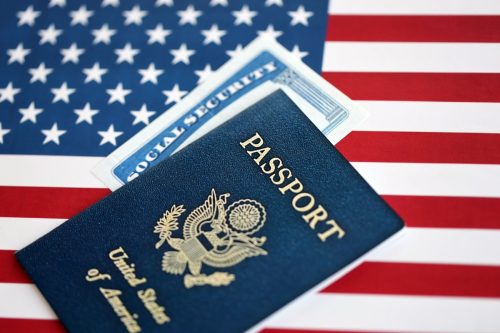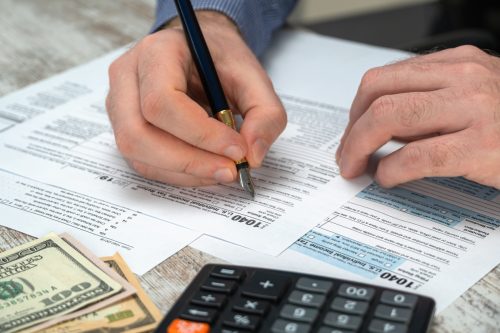I’m an Accountant and Here’s Why I’d Never File My Taxes Online

Believe it or not, we’re close to two months out from Tax Day, so if you haven’t started digging out last year’s filing or organizing your W-2s, you might want to get started. When it does come time to actually submit our returns, most of us opt to do so electronically—whether on our own or through a certified public accountant (CPA)—saving us the hassle of printing everything and mailing it to the Internal Revenue Service (IRS). However, according to Jay Starkman, author and CPA in Atlanta, you might want to revisit snail mail. Read on to find out why he never files his taxes online.
RELATED: IRS Issues New Alert on 5 Things You Must Declare on Your Taxes This Year.
Electronic returns can be targeted by cyberattacks.

E-filing is a no-brainer for some, but for others, it’s not a choice. The IRS requires every tax-exempt organization to file certain forms electronically, also requiring businesses with more than 10 returns and preparers who file 11 or more to e-file, Starkman explains in an opinion piece for The Wall Street Journal.
It may sound like e-filing eliminates a lot of unnecessary paperwork, but if you’re lucky enough to have the option, it may be wiser to mail your return. According to Starkman, one of the biggest issues with e-filing is the risk of a cyberattack.
“The problems with e-filing aren’t widely known, even by tax professionals. Paper is more secure, as demonstrated by recent malware attacks on e-filing tax software and preparation companies such as Wolters Kluwer, and by data breaches involving taxpayers’ personal information such as with the company TaxSlayer,” Starkman writes in the op-ed.
RELATED: IRS Warns 20% of Taxpayers Don’t Claim Major Refund Credit—Are You Eligible?
ID.me creates security concerns.

Starkman also points to security risks with ID.me. You have to register with the third-party tool if you want to set up an IRS online account or use the IRS Direct File tax program, and ID.me then verifies your identity. To do so, however, you have to submit your Social Security card and other sensitive documents—and that’s where things could get dicey.
“I advise my clients not to use ID.me because it is a private database of personal information,” Starkman explains in the op-ed piece. “My clients have no control over it and must trust that it won’t be hacked.”
RELATED: Ex-IRS Worker Warns TurboTax Is “Trying to Make Your Taxes Harder.”
The same rules don’t apply to paper and electronic returns.

Beyond security threats, filing a paper return gives you a bit more leeway. When you file by the deadline, your return is accepted and considered valid if there’s enough information for the IRS to determine the proper tax, he writes. But those who file electronically don’t have full protection if the IRS flags an issue, according to Starkman.
“Authorizing your preparer to e-file on your behalf doesn’t protect you as a taxpayer, because the IRS doesn’t consider an electronic return until it acknowledges receipt,” he writes.
Starkman cites several examples of taxpayers who thought they had e-filed correctly but ended up being penalized based on mistakes their CPAs made.
E-filing is also tricky when petitioning the tax court.

In the event you do get slapped with a penalty, you might want to petition the tax court. You can do so by mail or by e-filing, but the latter isn’t ideal in this case either.
Antawn Sanders tried to file a petition online, Starkman explains, but due to technical issues, it was filed 11 seconds past the deadline and rejected as late. Similarly, timezones created an issue when Roy Nutt submitted at 11:05 p.m. Central Time, which was 12:05 a.m. Eastern Time where the courts are, and technically the next day. It was marked as late, but had he put it in the mail and had it postmarked before midnight, it would have been considered on time, Starkman notes.
In general, paper might just be your best option when filing your returns and appeals.
“Considering that e-filing isn’t as forgiving as paper filing and raises other risks, paper returns seem the safest bet,” Starkman says. “Unlike e-filed returns, paper ones won’t get rejected for failure to click on a box. You might even get away with missing a deadline by mailing a day late—though I wouldn’t recommend cutting it close.”
RELATED: For more up-to-date information, sign up for our daily newsletter.
Best Life offers the most up-to-date financial information from top experts and the latest news and research, but our content is not meant to be a substitute for professional guidance. When it comes to the money you’re spending, saving, or investing, always consult your financial advisor directly.